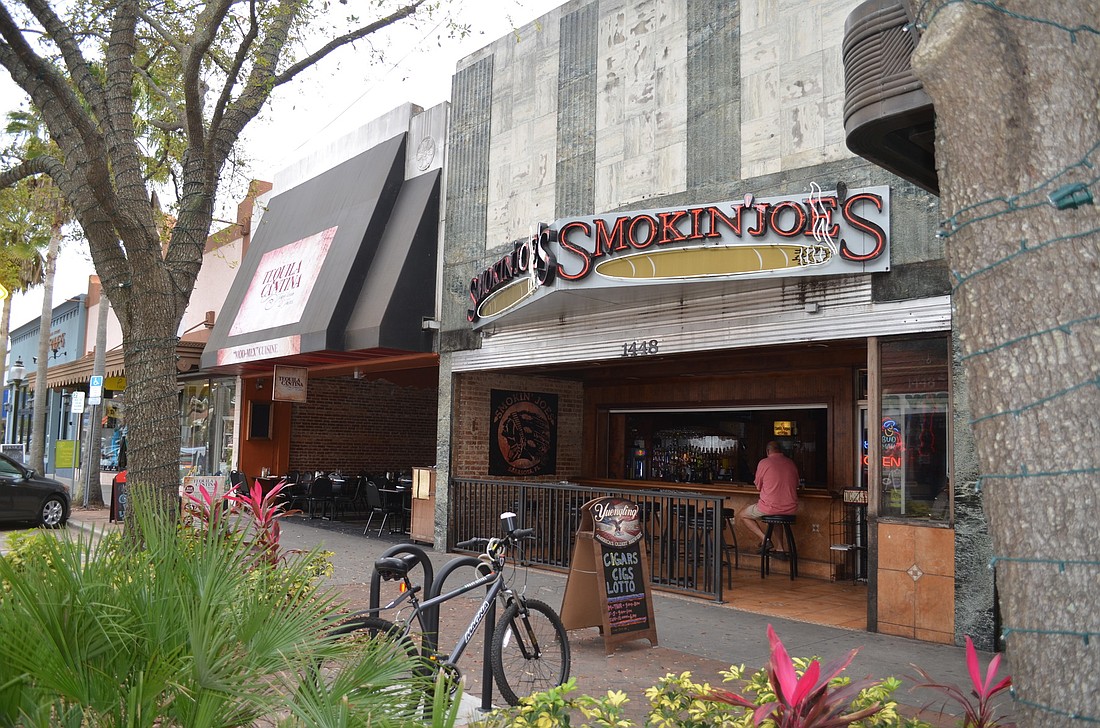- December 26, 2024
-
-
Loading

Loading

The City Commission has not even begun to discuss a series of proposed changes to Sarasota’s sound ordinance, but it has already become a controversial topic among some residents.
The revised ordinance was scheduled for consideration at the Feb. 18 commission meeting, but postponed to a later date. The revisions were made after a September meeting, during which commissioners, residents and the Sarasota Police Department voiced their displeasure with the current regulations.
The problems were twofold. The SPD said the ordinance was vague and often conflicting, making enforcement difficult. Commissioners and residents said that some downtown businesses consistently flouted the rules, with some residents calling for stricter noise regulations.
City Attorney Robert Fournier, who wrote the new ordinance, said his goal was to make it easier for police, businesses and citizens to understand the law.
“The goal was certainly not to loosen the regulations, nor was it to make it more stringent,” Fournier said.
Under the proposed changes, property owners with three or more violations in a year would be designated as chronic offenders. Those property owners would work with the city’s Neighborhood and Development Services division to mitigate the problematic noise.
The commission prioritized a focus on repeat offenders, with Mayor Shannon Snyder going so far as to threaten cutting off downtown liquor sales at 11 p.m. if problematic businesses did not comply with current regulations.
The new code would also establish restrictions on amplified noise between 11 p.m. and 7 a.m. on weekdays, and 11:59 p.m. and 7 a.m. on weekends. Mattison’s City Grille received an exemption to play music to those hours in 2010 — which was supported by downtown residents — but other businesses must cut off music an hour earlier.
Cheryl Walker is a resident of the condominiums at 100 Central Ave. who believes that a revised noise ordinance is necessary for the city. After seeing the proposed changes to the ordinance, however, she believes another revision is necessary.
She said the proposed changes are too lenient. Fournier said the city sought to unify the standards and hours of enforcement for the benefit of officers. Walker believes that, in the process, it chose the least stringent regulations to use as the new, unified standard.
“They changed all the hours to the grandfathered time that’s allowed at Mattison’s,” Walker said.
Walker had other complaints, too. The proposed ordinance would change the location of sound measurements from the property where the noise is generated to the property where the complaint was made.
Peter Fanning, president of the Downtown Sarasota Condominium Association, agreed with Walker’s assessment of the proposed changes. He said the new ordinance was not reflective of the changes downtown residents sought in September.
“Certainly, the residents downtown would not be able to accept this,” Fanning said.
Fournier said the changes were still fluid, and that the city attorney’s office would be open to revisions. Still, he said, he believes the changes were effective in clarifying the current regulations.
“We had a lot of language where it was probably vulnerable because they were subjective standards,” Fournier said. “What’s unreasonable to one person might not be unreasonable to another.”
Fournier acknowledged that this was a contentious issue, but said he was focused on clarifying current regulations.
“I think the existing ordinance can be improved on, and this is going to be a very hard subject to please everyone on,” Fournier said. “But, you have to start somewhere.”
Chronic Offenders
If changes to the sound ordinance are approved, property owners who violate the sound ordinance three or more times in one year may be designated by the SPD as a chronic offender.
The city’s Neighborhood and Development Services department would be able to design a mitigation plan to prevent noise offenses. Mitigation plans may include:
• Restrictions on days or hours of noise-producing activity;
• Placement of a restrictor on sound-producing equipment;
• Structural changes to muffle the noise emanating from the property;
• Requirements for self-monitoring and reporting of noise levels;
• Non-cooperative chronic offenders would be fined $1,000 for a subsequent violation, and up to $15,000 for “irreparable and irreversible” violations.
Contact David Conway at [email protected]